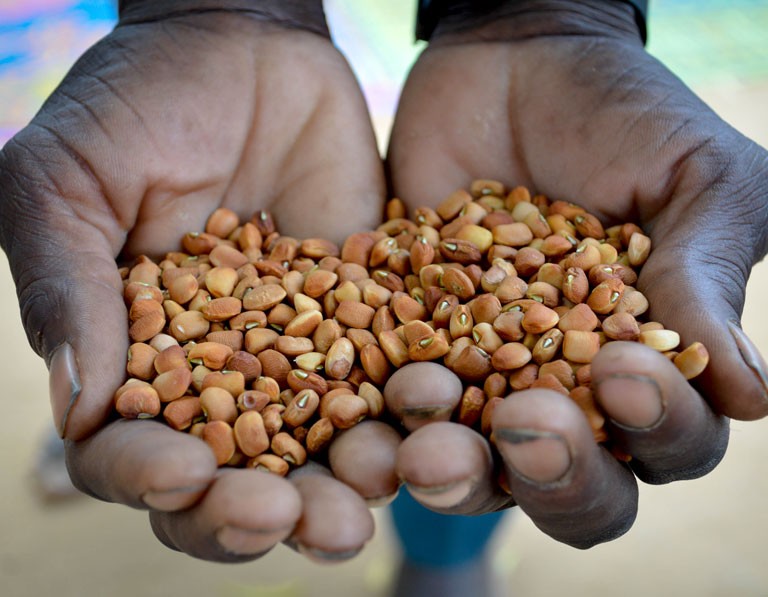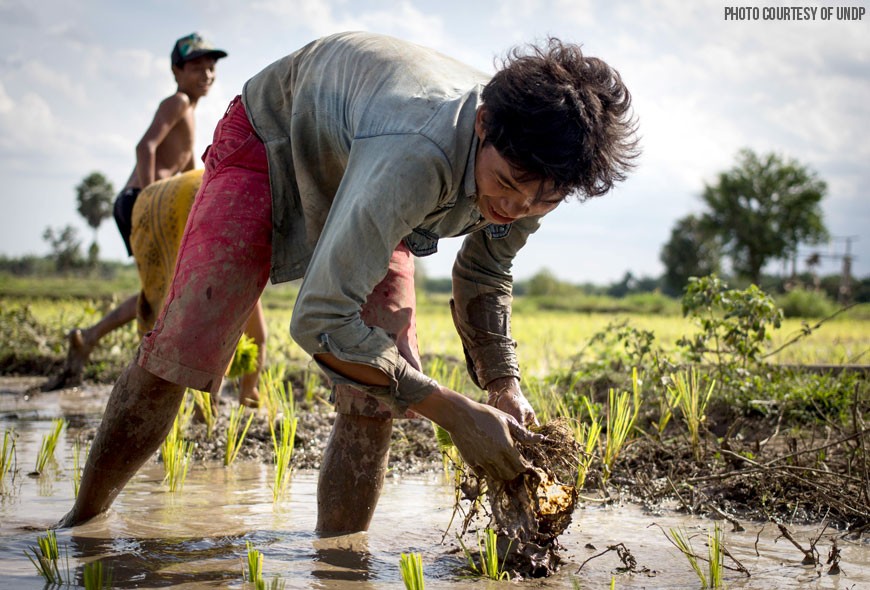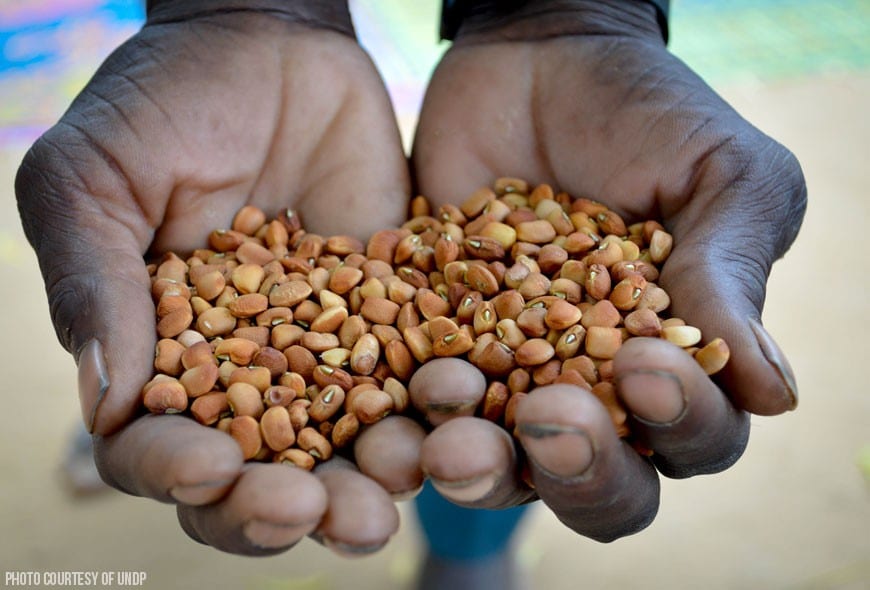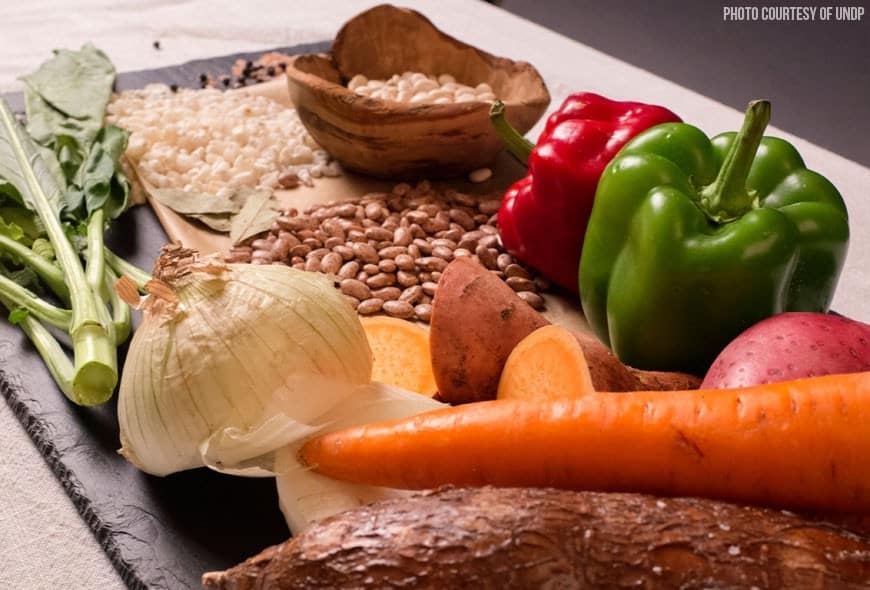UNDP Cookbook Highlights How Climate is Changing Cuisine
A home cooked meal and breaking bread among friends (both old and new) is one of the most universal ways we can connect with those around us. And a new cookbook, published by the United Nations Development Programme (UNDP), sheds light on culinary traditions from around the world, and also ties together projects focused on climate change and resiliency.
In other words, a home cooked meal becomes more than just food on the table; it tells the story of how destinations are adapting to the global phenomenon of climate change.
“This seemed like a really beautiful way of pulling together common experiences across the six countries, and being able to resonate with people and explain this global phenomenon in a very personal way,” Andrea Egan, Knowledge Management & Research Specialist at the UNDP and one of the individuals who spearheaded the project, tells MiLLENNiAL.
The cookbook focuses on six developing countries, sharing traditional recipes while shedding light on how the countries are adapting their traditions and enhancing food security in the face of our Earth’s change. All of the destinations: Cabo Verde, Cambodia, Haiti, Mali, Niger and Sudan are involved with projects that have a common theme around food security, and all supported by funding from the Government of Canada through the Canadian-UNDP Climate Change Adaptation Facility.
“Often, the issues of climate change are a bit overwhelming to grasp, especially when you’re talking about countries that you don’t quite know about or you’ve never been (…) so when you bring it down to something that’s very common across all cultures — everyone feels a connection to something like food — that helps everyone to understand the issues a bit more,” Egan says.
A focus on Adaptation & Resiliency to Climate Change
Rather than focus on the negative environmental impacts of pollution, the project is centered around adaptation and what we can do to live more sustainably. The cookbook represents a story of resiliency.
“We’re always adapting. Humans have been adapting for centuries, and that’s how we survive. And now with climate change, we have such a quick trajectory of change that’s outpacing anything we’ve seen before,” says Jennifer Baumwoll, Project Coordinator Canada-UNDP Climate Change Adaptation Facility at UNDP. “People don’t quite know exactly how to adapt all the time, which is why we have to work a little bit harder at it, but you see those changes happening.”
Baumwoll adds that the cookbook represents a positive, celebratory way to look at things, but also to critically examine the state of countries that might not survive this shift. “You look at how their traditions are changing, so it can be very sobering,” she says, explaining that the goal of the cookbook was to convey a powerful message in a universal way.
For someone in the United States, the immediate effects of climate change are less noticeable. We often joke about a warmer winter season, but we don’t see many effects of climate change firsthand. The communities where the UNDP projects are based experience immediate threats to their ways of life.
“You have to adapt because that’s your reality,” says Dorine Jean Paul, a Haitian native and the Project Manager of the Climate Change Adaptation Project at UNDP Haiti.
Each of the six projects were focused on enhancing food security, generating additional income and diversifying livelihood options. Some core highlights from the projects include founding agricultural cooperatives, empowering women into leadership roles, and education on nutritious food among others.
“All of these stories of empowerment, we were able to tell them through the cookbook,” Baumwoll says with valor.
The Reality of Our Changing Planet
Recipe examples in the cookbook include Caldo Peixe, a traditional fish soup from Cabo Verde, curry from Cambodia and passion fruit juice from Haiti. But the real substance of the cookbook stems from the stories of the projects in the developing countries.
Issues like a decrease in fish and plantain, as well as a longer dry season, are two core threats Haiti is facing. Jean Paul notes that because the projects were based around changing personal cuisine, Haitian communities were able to see the direct link to their lives, and were excited about action and solutions.
“The farmers don’t make the link (to climate change), they just see it happening and say ‘Oh, we have this problem,” Jean Paul tells us. “This project can help you have the words to speak with the people who are facing these threats.”
The biggest hurdle is finding the solution to furthering native wellbeing. Jean Paul continues, “[The locals] want to know, ‘Why am I losing my corn? That’s the thing that helps me send my children to school.’ This is the kind of initiative that helps us to find the common words to speak to the people.”
Lessons from Developing Countries
The shift in the global food system, such as what’s available, prices and the supply and demand shaping the economy, is already being impacted by the temperature fluctuations. A core message behind the cookbook is focused on the universal connection we have to our global community, as well as key ways to collaborate and learn from one another.
“The cookbook shapes the questions, ‘How can we think about what we eat a little more consciously, think about the ingredients and where they’re coming from and make that change based on something a bit broader?” Baumwoll says.
She encouraged readers to think about where our food is coming from, and to focus on local and seasonal ingredients. A more sustainable way of living starts with thinking about what is available at any given time, and where it is coming from.
The cookbook acts to capturing the beauty and joy of cooking, and how traditions and so much of our lives are based around food. These lessons are universal.
“It’s about celebrating what these countries are doing. Sitting somewhere like here in NYC or the US, we often think that we have all of the answers,” Baumwoll adds, “And I think the message here is that we have a lot to learn from these developing countries who are the ones seeing the impacts every day already.”
A short version of the cookbook is available for download online here. Limited hard copies can be acquired for donation through the Curio Spice website.











